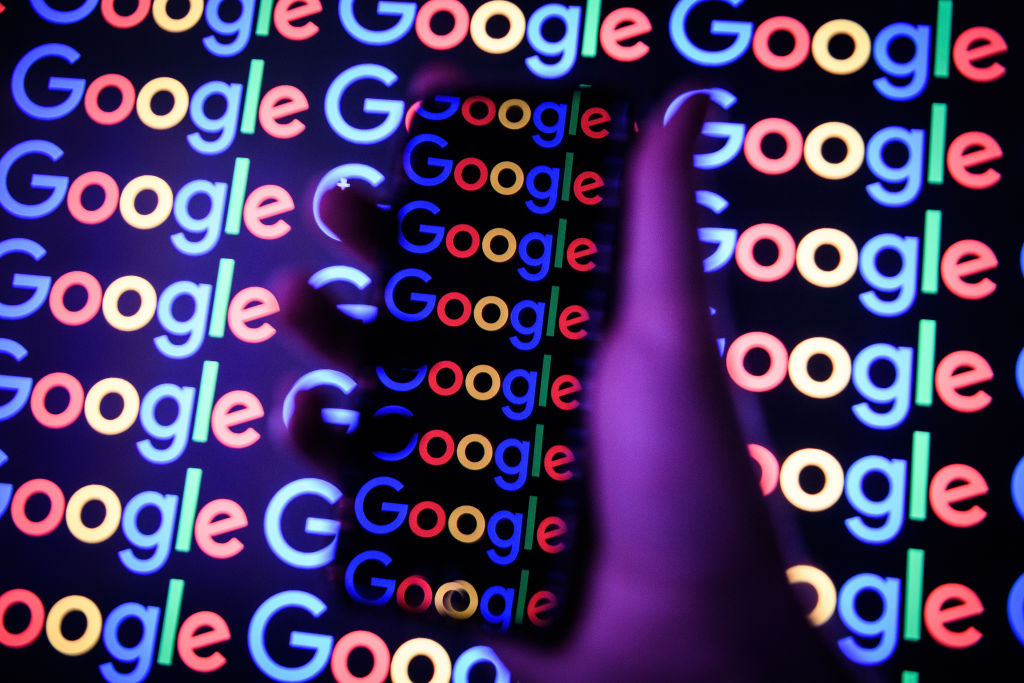Google reportedly beat Facebook and offered twice as much to acquire Fitbit for $2.1 billion


A free daily email with the biggest news stories of the day – and the best features from TheWeek.com
You are now subscribed
Your newsletter sign-up was successful
Google doesn't just want a place in your home. It reportedly fought off Facebook to earn a spot on your wrist.
On Friday, after a week of rumors, Google announced it will be acquiring Fitbit, the wearable fitness trackers, for $2.1 billion. This latest move comes after Google's $40 million purchase of Fossil's smartwatch technology in January, reports CNBC, and shows the tech giant's "aggressive attempt" to up their game in the wearables race, The New York Times observes.
Facebook has also been expanding its hardware portfolio with "Oculus virtual headsets, Portal smart speakers and planned AR glasses," and their interest in health tracking goes back to 2014, when the social network acquired a fitness app called Moves, The Verge notes. So it may not be surprising that Facebook purportedly held talks to buy the smartwatch pioneer — but ultimately, Facebook lost the deal to Google, who offered twice as much, reports The Information.
The Week
Escape your echo chamber. Get the facts behind the news, plus analysis from multiple perspectives.

Sign up for The Week's Free Newsletters
From our morning news briefing to a weekly Good News Newsletter, get the best of The Week delivered directly to your inbox.
From our morning news briefing to a weekly Good News Newsletter, get the best of The Week delivered directly to your inbox.
Google's presence in the wearables market is limited to Wear OS, which failed to sway Apple Watch users, CNET notes. And while Fitbit was the closest competitor to Apple Watch — which owns about half of the global wearables market — Fitbit has been struggling this year, reporting sinking sales in its July earnings, the Times reports.
"With Google's resources and global platform, Fitbit will be able to accelerate innovation in the wearables category, scale faster, and make health even more accessible to everyone," Fitbit co-founder and CEO James Park told CNN Business. As a reality check for the celebrating tech companies, Wired predicts that the acquisition "will attract the attention of antitrust regulators" before the deal is finalized in 2020.
A free daily email with the biggest news stories of the day – and the best features from TheWeek.com
Ramisa Rob is a web intern at The Week. She is also an investigative reporting fellow at Brian Ross Investigates, and has previously worked for the The Daily Star. A recent graduate of the University of Michigan, she is currently pursuing her Masters at NYU Tisch.
-
 9 products to jazz up your letters and cards
9 products to jazz up your letters and cardsThe Week Recommends Get the write stuff
-
 AI surgical tools might be injuring patients
AI surgical tools might be injuring patientsUnder the Radar More than 1,300 AI-assisted medical devices have FDA approval
-
 ‘Zero trimester’ influencers believe a healthy pregnancy is a choice
‘Zero trimester’ influencers believe a healthy pregnancy is a choiceThe Explainer Is prepping during the preconception period the answer for hopeful couples?
-
 TikTok secures deal to remain in US
TikTok secures deal to remain in USSpeed Read ByteDance will form a US version of the popular video-sharing platform
-
 Unemployment rate ticks up amid fall job losses
Unemployment rate ticks up amid fall job lossesSpeed Read Data released by the Commerce Department indicates ‘one of the weakest American labor markets in years’
-
 US mints final penny after 232-year run
US mints final penny after 232-year runSpeed Read Production of the one-cent coin has ended
-
 Warner Bros. explores sale amid Paramount bids
Warner Bros. explores sale amid Paramount bidsSpeed Read The media giant, home to HBO and DC Studios, has received interest from multiple buying parties
-
 Gold tops $4K per ounce, signaling financial unease
Gold tops $4K per ounce, signaling financial uneaseSpeed Read Investors are worried about President Donald Trump’s trade war
-
 Electronic Arts to go private in record $55B deal
Electronic Arts to go private in record $55B dealspeed read The video game giant is behind ‘The Sims’ and ‘Madden NFL’
-
 New York court tosses Trump's $500M fraud fine
New York court tosses Trump's $500M fraud fineSpeed Read A divided appeals court threw out a hefty penalty against President Trump for fraudulently inflating his wealth
-
 Trump said to seek government stake in Intel
Trump said to seek government stake in IntelSpeed Read The president and Intel CEO Lip-Bu Tan reportedly discussed the proposal at a recent meeting
